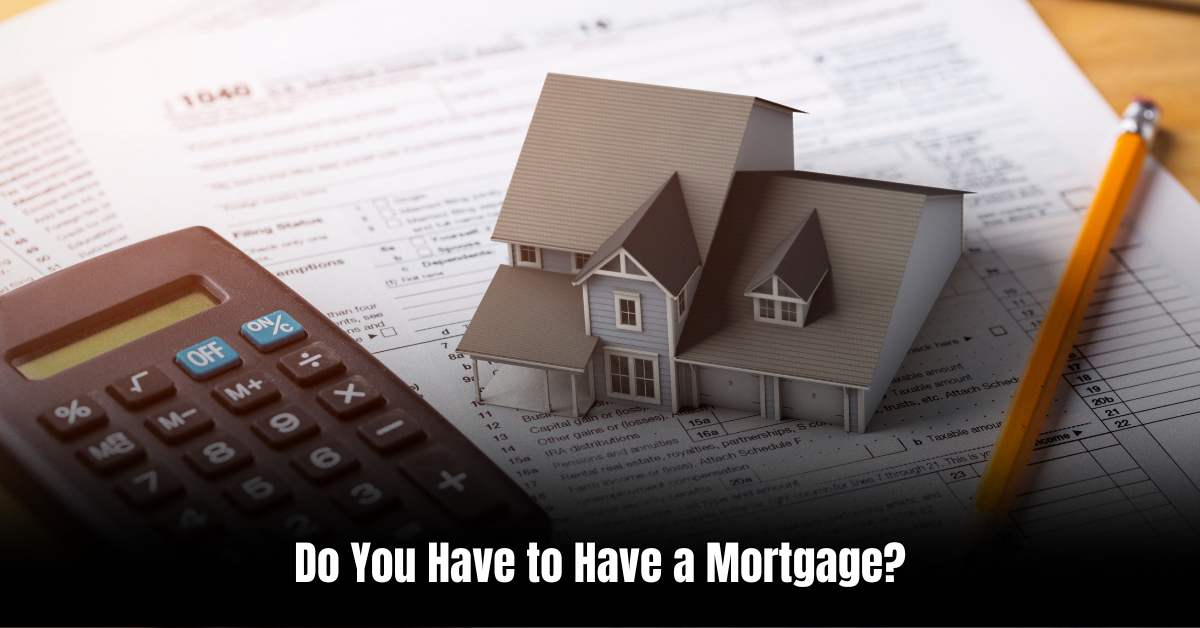Buying a home is a significant milestone in one’s life, and one of the most common questions that people have is whether or not they need to have a mortgage to make this dream a reality. While a mortgage is a popular option for many buyers, it’s not the only way to finance a home purchase. In this article, we will explore different alternatives to mortgages and help you determine which option is best suited for your situation.
What is a mortgage?
Let’s start by understanding what exactly a mortgage is. A mortgage is a loan that a bank or lender provides to help you purchase a property. The loan is secured by the property itself, which means that if you fail to repay the loan, the lender has the right to take ownership of the property through a legal process known as foreclosure.
Mortgages typically come with interest rates, repayment terms, and monthly payments. The terms and conditions of a mortgage can vary depending on the lender and the type of mortgage you choose.
Alternatives to Mortgages
1. Saving Up
If you have a long-term plan to purchase a home and a good amount of time on your side, saving up for the entire purchase price might be an option for you. While this may require a significant amount of discipline and patience, it allows you to buy a home without the burden of monthly mortgage payments. It is worth noting that this option may not be feasible for everyone, especially in areas with high property prices.
2. Owner Financing
Owner financing is an arrangement where the seller of the property acts as the lender and provides the financing for the buyer. In this case, the buyer makes monthly payments directly to the seller instead of a traditional mortgage lender. This option can be beneficial for both parties, as it eliminates the need for a bank or lender, and the buyer may have more flexibility in negotiating the terms of the loan.
3. Rent-to-own
Rent-to-own is another alternative to a mortgage that allows individuals to rent a home with the option to buy it at a later date. In this arrangement, a portion of the monthly rent is applied towards the purchase price, allowing the renter to save up for a down payment while living in the home. This can be a great option for individuals who may not be able to qualify for a traditional mortgage at the moment but have plans to purchase a home in the future.
4. Shared Equity
Shared equity arrangements involve sharing the ownership and financial responsibility of a property with another party. This can be a family member, a friend, or even a housing association. Under this arrangement, both parties contribute to the purchase price and ongoing costs of the property. When the property is sold, each party receives a percentage of the sale proceeds based on their initial contribution. Shared equity can be a great way to get onto the property ladder without the need for a large mortgage.
Which Option is Right for You?
Deciding whether or not to have a mortgage ultimately depends on your financial situation, long-term goals, and personal preferences. It is essential to consider each option and evaluate its pros and cons carefully.
| Option | Pros | Cons |
|---|---|---|
| Saving Up | No monthly mortgage payments | Requires significant time and discipline |
| Owner Financing | More flexibility in loan terms | Seller may charge a higher interest rate |
| Rent-to-Own | Opportunity to save for a down payment | Higher monthly payments compared to traditional rent |
| Shared Equity | Lower initial investment | Requires sharing financial responsibility |
It’s also important to consult with a financial advisor or a real estate professional who can guide you through the decision-making process and provide personalized advice based on your circumstances.
In conclusion, having a mortgage is not the only option for purchasing a home. By exploring alternative financing methods and carefully evaluating the advantages and disadvantages, you can find the best path to homeownership that aligns with your financial goals and preferences.
Frequently Asked Questions: Do You Have To Have A Mortgage? Exploring Homeownership Options
Do You Have To Have A Mortgage To Buy A House?
No, a mortgage is not mandatory to buy a house. However, most people choose to finance their homes through mortgages due to affordability and flexibility.
Can You Buy A House Without A Mortgage?
Yes, if you have enough savings or can afford to purchase a house outright, you can buy a house without a mortgage. This option provides financial independence and eliminates interest payments.
Is It Better To Buy A House With Cash?
Buying a house with cash has advantages, such as avoiding interest and mortgage repayments. However, it depends on your financial situation and long-term goals. Consulting with a financial advisor can help you make an informed decision.
What Are The Benefits Of Having A Mortgage?
Having a mortgage allows you to spread out the cost of buying a house over a longer period. It can free up cash for other investments and tax benefits. Additionally, it helps build credit history and equity.
Ismail Hossain is the founder of Law Advised. He is an Divorce, Separation, marriage lawyer. Follow him.





Leave a Reply